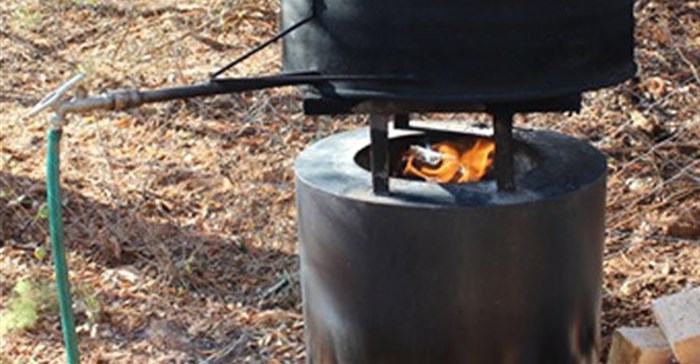
Top stories






More news






ESG & Sustainability
#Sona2026: President announces crisis committee to tackle SA's water challenges








The stove provides rural schools with a safe and quick way to cook for learners while helping to save the planet.
Williamson is one of the 2016 semi-finalists in the Global Cleantech Innovation Programme for SMEs in South Africa (GCIP-SA), which is part of a global initiative that aims to identify and support SMEs and start-ups with innovative solutions in the fields of energy efficiency, renewable energy, waste beneficiation, water efficiency and green buildings.
The Ventureburn Pitching Den competition is a platform for startup companies with tech-enabled solutions to pitch their businesses to a panel of judges. Overall, 40 startups presented their ideas during the two-day competition. The Mashesha Stove (mashesha means “fast cooking” in SiSwathi) was awarded a R50,000 prize sponsored by the SAB Foundation for the best social innovation.
The stove offers a simple, innovative solution to the 11,500 South African schools that still use open fires in semi-enclosed shelters to cook for learners.
According to the Department of Education in Mpumalanga, more than 50% of the rural schools in the province still cook using this method. Not only is it energy inefficient and environmentally disastrous, it is also very unhealthy for the cooks due to the large amounts of smoke to which they are exposed. Statistics SA reported that respiratory infection and eye diseases are prevalent as a result of the smoke pollution, resulting in thousands of deaths per year.
An average size school cooks for approximately 900 learners using 4,8 tonnes of wood per year.
According to Williamson, the founder of Sustainability Professionals and designer of the Mashesha stove, the stove uses 56% less wood than traditional open fires and burns cleaner, with basically no smoke. The stove has a double-barrelled metal chamber with strategically placed air vents to allow for natural convection airflow that promotes high-heated combustion and a secondary ignition of syngas. It is available as large (16kg) and smaller (9kg) mild steel portable units suitable for industrial cooking as well as for individual households.
To date, 13 schools have been provided with large stoves and 50 of the small stoves have been sold. The current price for the small stove is R970 and R1,900 for the large stove.